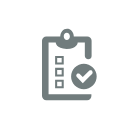ISO 39001
Anybody running a large fleet has a duty of care both for the drivers themselves, and the wider public, to reduce the number of people killed or injured on the road.
ISO 39001 sets out the best practice drawn up by global industry experts to define the minimum requirements for a robust Road Traffic Safety Management System [RTSMS].
How do I get ISO 39001?
ISO 39001 is, rightly, a demanding standard, and places significant requirements on a business. However, don’t be put off by thinking it is too complex a thing to do. We aren’t saying it’s simple, but with us doing the bulk of the work for you, including managing the whole process, it is achievable.
Here are the following stages to becoming and staying certified to ISO 39001:
- Establish a system that complies with the standard
- Address specific requirements made by the standard such as identifying and use road traffic safety performance factors from a pre-determined list of risk exposure factors
- Make everyone aware of the system and any changes in ways of working that have come about
- Operate the system to
a. Make sure it works efficiently
b. Build evidence of compliance with the requirements of the standard
c. Get staff familiar with it - Appoint a “certification body” to independently assess whether you comply with the standard. We recommend you choose a UKAS accredited body (see below)
- Keep using the system once it has been certified (to keep the certificate)
There is more detailed information below about the various stages you need to go through.
Your ISO 39001 certification journey

Getting Started
- Provide a comprehensive briefing of what the standard asks you to do in simple to understand terms
- Begin to understand in detail how you operate
- Set a timetable and stick to it
- Decide what you want covered by the certificate – which sites, which operational activities.
- Put the right resources in place
- Collect all existing documentation
- Establish a dedicated client portal on our collaboration and document sharing platform
- Begin to capture how you meet specific requirements:
a. having specific roles within the business responsible for road traffic safety
b. identifying which of the 13 RTS Performance factors in 3 categories apply to you, how you deal with them, and
c. specify elements and criteria in appropriate detail to set, monitor and measure RTS objectives and RTS targets. - Establish a dedicated client portal on our collaboration and document sharing platform

Implementing
- Establish a detailed project plan in our online project management platform (and stick to it)
- Decide with you what you need operationally
- Map out your business processes
- Conduct gap analysis between what the standard requires and what you have/do already
- Implement the system, including completing
a. Job descriptions in line with required roles & responsibilities
b. Statement of Applicability regarding the RT Performance Factors
c. elements and criteria in appropriate detail to set, monitor and measure RTS objectives and RTS targets. - Submit the system to Episode Head Office for final QC checks
- We submit it to you for your final approval
- Brief staff on what they need to know & do
- Separate consultant Internally audits the system
- Address any issues found
- Carry out a management review

Certification
- Work with you to select and appoint a UKAS accredited certification body.
- Be onsite throughout the certification process
- Address any issues that arise during the audit
- Brief you on post-certification activity
a. 3 year cycle of annual surveillance audits and
b. what you need to do throughout the year to maintain the system - Agree where the finished, certified system should be housed
Episode guarantees certification
FAQ’s
Is it a demanding standard?
Due to the seriousness of the subject it is addressing, ISO 39001 is a very demanding standard to adopt. Most major fleet operators will have operational systems and processes in place (vehicle maintenance, driver selection, training and monitoring, etc. but the 13 performance factors you have to consider are detailed. This may lead to more comprehensive systems and processes than currently exist.
Will it create red tape and take too much time?
Done wrong, absolutely. Too many systems we see have a form or document to cover every aspect of the standard. That’s the easy way to build a system, and an equally easy way to cripple you operationally. You know when this is the case when you spend a month “updating” (i.e. creating false) records, etc. before the auditor next comes.
Done right, as we will make sure it is, the system should be at the core of how you work. Remember, we make ISO work for you, not the other way around.
How long will it take?
It is difficult to give precise timescales, as it depends on a number of things such as how complex the business is, how close you are to complying with the standard already, and so on. We recommend planning for it taking at least 3 months.
Why should I choose Episode?
For a fixed cost we will do as much of the work as possible, and guarantee certification. As much of the work is done onsite as possible to get it right, and to coach you to allow you to be self-sufficient following initial certification.
Episode has worked with over 40 clients, many of whom have more than one standard they comply with (one has 5). All have been successfully certified and many subsequently ask us to help them maintain certification, and get more out of the system.
How much will it cost?
There are the following costs that will arise
- External consultants
Episode always gives a fixed fee proposal for a project, and we include guaranteed certification. A typical single standard project is about £4,550, but this does depend on the size and complexity of your business.
- Certification costs
You will need an external company certify the system as being compliance with the standard. There are over 100 UKAS accredited bodies in the UK, and a range of prices. All UKAS accredited bodies will get you to where you need to be (i.e. issued with a UKAS accredited certificate). We will manage this process for you, and typical costs for a single standard range from £1,800 to £2,500 for a single standard, depending on size and complexity of the business.
- Internal business costs.
Sometimes, but rarely, you may have to invest in things such as having machinery serviced &/or calibrated.
To speak to an expert to discuss your requirements call us on 0113 801 9001 or email us at info@episodeltd.com
What is quality management and ISO 39001?
ISO 39001:2012. Road traffic safety (RTS) management systems — Requirements with guidance for use, specifies requirements for a road traffic safety (RTS) management system to enable an organisation that interacts with the road traffic system to reduce death and serious injuries related to road traffic crashes which it can influence. The requirements include development and implementation of an appropriate RTS policy, development of RTS objectives and action plans, which take into account legal and other requirements to which the organisation subscribes, and information about elements and criteria related to RTS that the organisation identifies as those which it can control and those which it can influence.
ISO 39001 is also fully aligned with the Safe System approach to road safety, which is embedded in the UN Global Plan for Road Safety, and the UN Sustainable Development Goals.
The ultimate goal under the Safe System approach goal is to eliminate road fatalities and serious injuries, supported in the interim by periodic, quantitative targets to reduce deaths and serious injuries, as well as those factors that are causally linked to them. Safe System intervention addresses all elements of the road traffic system and their linkages - road infrastructure, vehicles, the emergency medical system, and road users. ISO 39001 provides a management tool to ensure the best possible results from these endeavours. Inspired by the reframing of road safety as a societal health issue in the best performing countries, the core of the ‘Safe System’ approach is the design and management of a road traffic system better able to accommodate human error and recognize the physical vulnerabilities of road users. This is primarily through managing crash energy, so that no individual road user is exposed to crash forces likely to result in death or serious injury.
When done correctly, gaining and maintaining ISO certification is not as complicated as most think. Trust Episode to make ISO work for you, not the other way around.
Contact us today on 0113 8019001 or click here to email us

It was only by utilising the expert guidance and experience of Episode that Thurston Group was able to attain certification within an exceptionally challenging time frame. We therefore offer our thanks to Episode Ltd. For the diligent and professional services provided. We also look forward to working with them again soon and would not hesitate to recommend their services."
Peter Spieight, Senior Divisional Director, Thurston Group, Wakefield
Roger's support was invaluable in terms of gap analysis, recommendations for improvement, and facilitation of the certification process. I would strongly recommend Roger to any organisation wishing to develop or improve its management systems, in a way which minimizes bureaucracy, and focuses on best serving the needs of the organization.
Gary Evans, Flour Corporation, Abu Dhabi
Roger and Sandy at Episode were great in helping us achieve not only one but two ISO standards 9001:2015 and 14001:2015. Episode were extremely helpful from the onset, they were able to break down the ISO standard so they were easily comprehensible and well applied to our business in a sustainable manner. They are a company that offers a guaranteed certification at the end of the process and they delivered it. I believe that the work completed during this process was key to us having won the Leeds Bid contract.
Harvey Mills, Managing Director, Forge Recycling, Leeds.
If Sandy hasn’t already updated you we are delighted to say we passed the transition audit for ISO 9001 and ISO 14001. Sandy did an absolutely fab job and all credit to her, we have loved having both of you here it’s been a pleasure.
I have had a brief chat with Morgan[the CEO] about the next steps and how we manage things going forwards. Morgan will be in touch with you soon about this and getting Episode/Sandy back in on a regular basis. Once again many thanks for everything and especially to Sandy!!
Morag Tearne, HR and Health & Safety Manager, H. Slingsby plc, Shipley
Episode is always prepared to go the extra mile. When in a tight spot the lead consultant carried out an audit for us at very short notice (on a Sunday afternoon) to keep us on track. What is important to us is the advice they give us is practical and tailored to us. The quality of output Episode produces is very high.
This has resulted in us having a multi-year managed service from Episode so as a company we know our ISO 9001, ISO 14001 and ISO 45001 integrated system is up to date and working for us.
Gareth Walters, Financial Controller, Sports Turf Research Institute, Bingley.
When asked by Episode what three things they do well, and what three things they could improve upon, my answers were:
Done well
1. Client Communication, responded to queries very quickly
2. Requirements of the standard were communicated in a simple manner.
3. Assistance from initial implementation to date of assessment was very good.
I can honestly there is nothing I feel they should improve upon.
Paul Hunneybell, Operations Manager, Fenland Fire Contracts Limited, Luton
The consultant worked with the team in Scott Bader Middle East Ltd. to completely re-engineer our Integrated Management System incorporating ISO 9001, ISO 14001 and OHSAS 18001. Until then we were slaves to the ISO audits, with the systems not adding much value beyond certification. Now we have a business management system that really works for us and is truly integrated into our operations. We were also successfully re-certified along the way.
John Kemp, CEO Scott Bader Middle East, Africa and Asia
The consultant really focused on making our systems and processes work better for us, not just help us comply with ISO 9001. He was able to work with Department Heads and Senior Management to shape their strategic thinking about quality and business objectives without telling them what they had to do because the standard says so.
Karim D'Alessandro, HSE Director, Shelf Drilling Inc.




